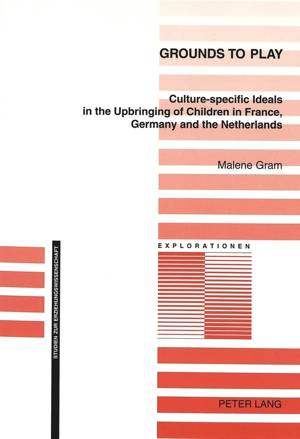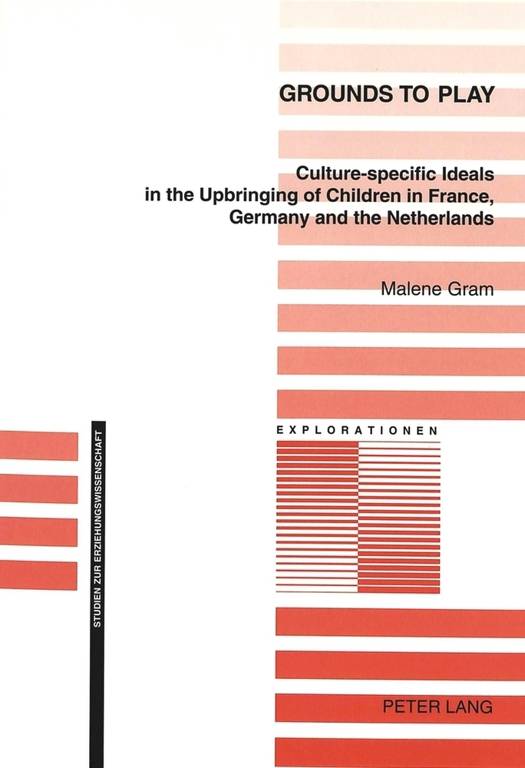
- Afhalen na 1 uur in een winkel met voorraad
- Gratis thuislevering in België vanaf € 30
- Ruim aanbod met 7 miljoen producten
- Afhalen na 1 uur in een winkel met voorraad
- Gratis thuislevering in België vanaf € 30
- Ruim aanbod met 7 miljoen producten
Zoeken
Grounds to Play
Culture-Specific Ideals in the Upbringing of Children in France, Germany and the Netherlands
Malene Gram
€ 134,95
+ 269 punten
Omschrijving
What is 'good' for children? Should children learn or play? The answers to these questions vary depending on where the questions are asked. Focusing on a Danish company producing playgrounds the study reflects the relationship between culture and consumption, and outlines culture-specific perceptions of childhood and ideals for the upbringing of children in France, Germany and the Netherlands. These ideals are examined through an interdisciplinary analysis of family patterns, school systems and advertisements for products for children. Starting with a brief examination of the spare-time activities of 6 to 12 year-old children, the author outlines the adults' view on what is 'good' for children during their spare time. This study aims to demonstrate what ideals for upbringing are characteristic of three European societies. It will be of special interest to practitioners, scholars and students working with children in a cross-cultural perspective.
Specificaties
Betrokkenen
- Auteur(s):
- Uitgeverij:
Inhoud
- Aantal bladzijden:
- 328
- Taal:
- Engels
- Reeks:
- Reeksnummer:
- nr. 37
Eigenschappen
- Productcode (EAN):
- 9783906770529
- Verschijningsdatum:
- 19/11/2003
- Uitvoering:
- Paperback
- Formaat:
- Trade paperback (VS)
- Afmetingen:
- 140 mm x 210 mm
- Gewicht:
- 439 g

Alleen bij Standaard Boekhandel
+ 269 punten op je klantenkaart van Standaard Boekhandel
Beoordelingen
We publiceren alleen reviews die voldoen aan de voorwaarden voor reviews. Bekijk onze voorwaarden voor reviews.











